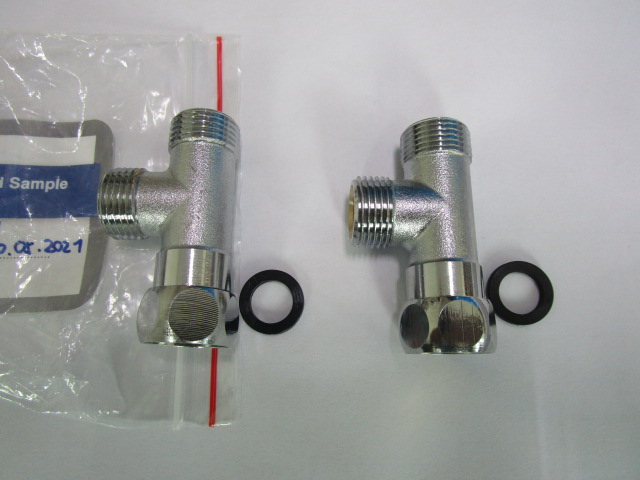
In the global marketplace, product quality certifications are crucial for ensuring compliance with international and regional standards, enhancing consumer trust, and facilitating market access. These certifications cover a wide range of industries and focus on aspects such as safety, quality, environmental protection, and health. Below is a detailed description of each certification:
Contents
- 1 ISO (International Organization for Standardization)
- 2 CE Marking
- 3 RoHS (Restriction of Hazardous Substances)
- 4 UL (Underwriters Laboratories)
- 5 FDA (Food and Drug Administration)
- 6 FCC (Federal Communications Commission)
- 7 CSA (Canadian Standards Association)
- 8 DIN (Deutsches Institut für Normung)
- 9 BSI (British Standards Institution)
- 10 EMC (Electromagnetic Compatibility)
- 11 PSE (Product Safety of Electrical Appliance & Materials)
- 12 GS (Geprüfte Sicherheit)
- 13 HACCP (Hazard Analysis Critical Control Point)
- 14 GMP (Good Manufacturing Practice)
- 15 REACH (Registration, Evaluation, Authorisation, and Restriction of Chemicals)
- 16 HALAL Certification
- 17 C-Tick and A-Tick (Australia)
- 18 SAA (Standards Australia)
ISO (International Organization for Standardization)
ISO certifications, such as ISO 9001 (Quality Management Systems) and ISO 14001 (Environmental Management Systems), are among the most widely recognized international standards. They ensure products and services consistently meet customer requirements and quality is continuously improved. Website: www.iso.org
CE Marking
The CE mark indicates that a product complies with EU legislation and can be sold throughout the European Economic Area. It covers a wide range of products, including toys, electrical equipment, and medical devices, ensuring they meet EU safety, health, and environmental protection requirements. Website: ec.europa.eu
RoHS (Restriction of Hazardous Substances)
RoHS is an EU directive that limits the use of specific hazardous materials found in electrical and electronic products. It aims to protect human health and the environment by reducing the exposure to dangerous substances. websites, as it is an EU directive.
UL (Underwriters Laboratories)
UL certification means that a product has been tested by UL to nationally recognized Safety Standards and found to be free from reasonably foreseeable risk of fire, electric shock, and related hazards. It is a crucial certification for entering the North American market. www.ul.com
FDA (Food and Drug Administration)
The FDA is responsible for protecting public health in the USA by ensuring the safety and efficacy of drugs, biological products, medical devices, food, cosmetics, and products that emit radiation. FDA certification is essential for products in these categories to be sold in the United States. Website: www.fda.gov
FCC (Federal Communications Commission)
FCC certification is required for electronic products sold in the United States. It indicates that the electromagnetic interference from the device is under limits approved by the FCC, ensuring that devices do not interfere with wireless and other telecommunications services. Website: www.fcc.gov
CSA (Canadian Standards Association)
CSA certification signifies that a product has been tested and meets applicable standards for safety and performance in Canada. It covers a wide range of products including electrical and electronic devices, gas appliances, and personal protective equipment. Website: www.csagroup.org
DIN (Deutsches Institut für Normung)
DIN standards are German national standards that ensure quality, efficiency, and safety. Products meeting DIN standards are known for their reliability, quality, and compliance with German and, often, European regulations. Website: www.din.de
BSI (British Standards Institution)
BSI Kitemark is a quality mark owned and operated by BSI. It demonstrates that a product conforms to British or international standards, ensuring quality, safety, and reliability. Website: www.bsigroup.com
EMC (Electromagnetic Compatibility)
EMC certification ensures that electronic and electrical products do not emit or are not affected by electromagnetic interference that can degrade performance. It is crucial for compliance in many markets, including the EU and the USA. Website: Specific information can be found on various national regulatory bodies’ websites.
PSE (Product Safety of Electrical Appliance & Materials)
PSE is a mandatory safety and EMC approval in Japan for electrical appliances and materials. Products must comply with Japanese safety regulations and standards to be sold in Japan. Website: www.meti.go.jp
GS (Geprüfte Sicherheit)
The GS mark is a voluntary certification for products sold within the European Union. It indicates that a product meets German and, by extension, EU safety requirements. Website: Information can be found through certified bodies like TÜV (www.tuv.com).
HACCP (Hazard Analysis Critical Control Point)
HACCP is a management system in which food safety is addressed through the analysis and control of biological, chemical, and physical hazards from raw material production, procurement, and handling, to manufacturing, distribution, and consumption of the finished product. Website: www.fda.gov provides guidelines for the U.S. context.
GMP (Good Manufacturing Practice)
GMP certifications ensure that products are consistently produced and controlled according to quality standards. It is essential for industries like pharmaceuticals, food and beverages, and cosmetics. Website: Information available on the FDA website (www.fda.gov) and other national health authorities.
REACH (Registration, Evaluation, Authorisation, and Restriction of Chemicals)
REACH is an EU regulation that addresses the production and use of chemical substances and their potential impacts on human health and the environment. Website: echa.europa.eu
HALAL Certification
HALAL certification is essential for products that are permissible under Islamic law. It covers a wide range of products, including food, cosmetics, pharmaceuticals, and more, ensuring they meet Islamic dietary laws. Website: Various certifying bodies worldwide offer HALAL certification; one example is the Islamic Food and Nutrition Council of America (www.ifanca.org).
C-Tick and A-Tick (Australia)
C-Tick and A-Tick marks indicate compliance with Australian regulatory requirements for electromagnetic compatibility and telecommunications, respectively. They have been replaced by the RCM (Regulatory Compliance Mark) for new approvals. Website: www.acma.gov.au
SAA (Standards Australia)
SAA approval signifies that a product complies with Australian safety and performance standards. It is important for electrical equipment and many other products sold in Australia. Website: www.standards.org.au
These certifications play a pivotal role in ensuring product quality, safety, and compliance with international and regional standards, thereby facilitating global trade and protecting consumer interests.




